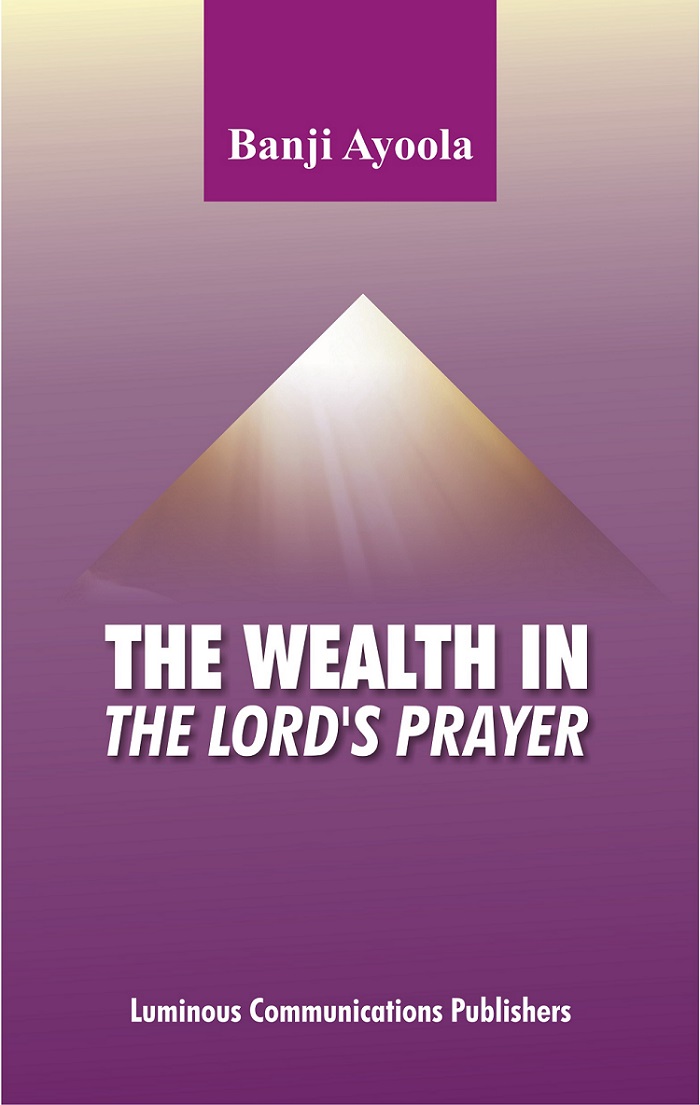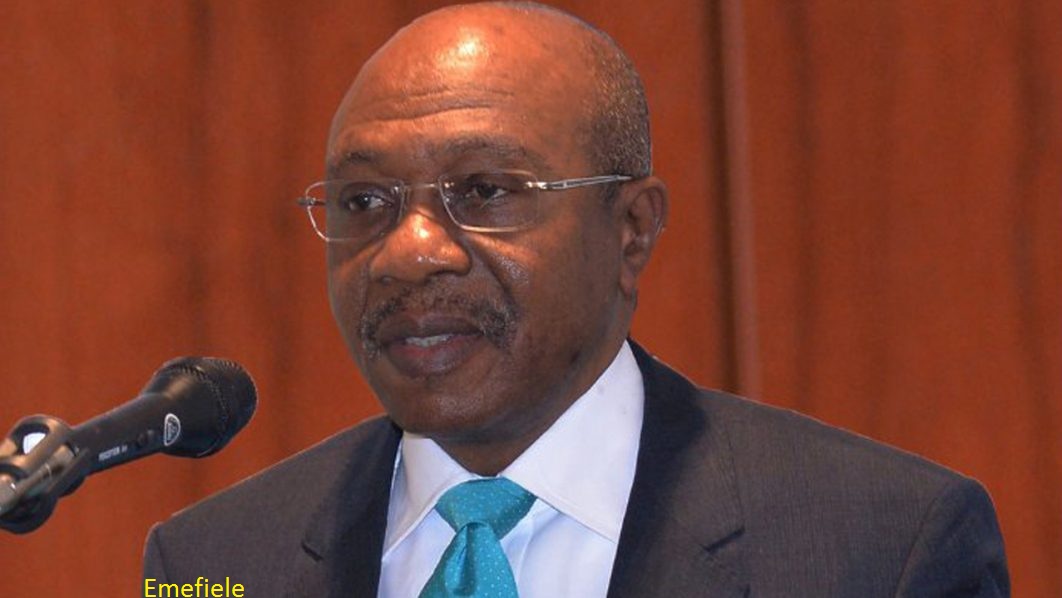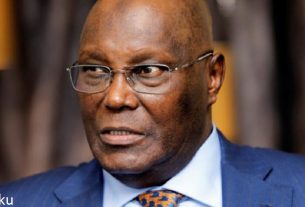In what may be described as a case of an institutional victim of leadership misadventure, the Central Bank of Nigeria (CBN) has been declared by the Independent National Electoral Commission (INEC) untrustworthy and ipso facto, unfit to keep sensitive election materials for the forthcoming elections – soon in the case of Ekiti, Osun states, and much later in the case of other elections.
INEC Chairman, Prof. Mahmood Yakubu said the electoral body would no longer entrust its sensitive election materials with the CBN. ‘‘We are not going to use the CBN for Ekiti elections.
The material will be moved from our headquarters in Abuja to the airport and then to our state office.’’ Such sensitive materials include ballot papers and result sheets, among other things. Let it be said directly that this is a smear on the integrity of a major state institution and one which needs to be interrogated with a bit of clear-headed thinking. How did Nigeria’s most important financial institution come to be found so wanting?
It is opprobrium brought upon it by, of all things, the aspiration of its head, the governor of CBN, Godwin Emefiele for high political office: he aspired to contest for president of the Federal Republic of Nigeria while remaining on his seat.
The CBN is not merely one of the many institutions of government. ‘‘A central bank is a financial institution given privileged control over the production and distribution of money and credit for a nation or a group of nations,’’ writes online Investopedia. It is also empowered by law to ‘enact monetary policy,’ ‘regulate the money supply and set interest rates,’ ‘manage foreign exchange reserves,’ and regulate the banking industry. These are powers enshrined in the CBN Act and which Emefiele exercises although not necessarily alone. This is to say that what the governor of the CBN does or fails to do, affects directly the country’s financial system, and in turn the economy.
So far as aspiration goes, Emefiele has all rights within the law to aim for whatever position he wishes in the land. But he must do so with the utmost sensitivity to the role of the CBN that he heads within the state economic and political system, including as a banker to the Federal Government, as stipulated in Section 36 of the CBN Act, and as ‘the banker to banks in the country.
For, it is no exaggeration that when the CBN sneezes, the financial sector, and in turn the national economy may catch a cold, so to speak. He must consider the legal and ethical implications of every step that he takes in pursuit of his legitimate ambition; he must, we should expect, think deeply about the impact of his ambition on his present and future prospects.
With the benefit of hindsight, this banker seems to have not thought through his aspiration, or merely allowed his judgment to be beclouded by naked, blind ambition and edged on by persons and groups whose motives may not necessarily coincide with his desire, and who may have chosen to not have read properly the job requirements of a CBN governor as stipulated in the CBN Act.
More than rumours that had gone round for some time, the Emefiele for President project took off in earnest with ‘Friends of Emefiele’, ‘Emefiele Support Group’ bodies that urged the governor to run for president, and apparently financially well resourced, embarked on wide publicity of their goal, including put up posters across the country and even bought a large number of campaign vehicles appropriately branded.
Whereas his cheerleaders may not have examined the provisions of the CBN Act in respect of the position of a governor, it is not reasonable to grant that Emefiele who has served seven years in the post would not know what the rules say. Section 9 of the act says that ‘the Governor and the Deputy Governors shall devote the whole of their time to the service of the Bank and while holding office, shall not engage in any full or part-time employment or vocation whether remunerated or not…’ But that is for whosoever wishes to remain in the system. Aspirants to other vocations are free to leave in pursuit of their interest. But they must leave. Emefiele sought to pursue his aspiration in clear violation of this rule.
Indeed, his procedure to pursue his aspiration was somewhat shilly-shally, characterised by ‘should I, should I not’ and riddled with obfuscations of sorts. He had denied rumours of his political ambition and claimed that he would rather focus on his job to fulfil the statutory responsibilities of the CBN and ultimately to help the administration of President Buhari ‘finish strong.’ At another time, he even posted a ‘No Distractions Please’ warning to his ‘friends’ and ‘supporters.’
Reportedly a card carrying member of the All Progressives Congress (APC), Emefiele’s supporters, including an association of farmers indebted to the CBN, had raised the N100 million required to obtain the relevant expression of interest forms. He waited for them to get that done only to say he would prefer to fund his presidential aspiration from his own resources. To that extent he sounded respectable: anyone too impecunious to pay for his nomination form, even though the fee is morally outrageous, should have no business seeking the high office of president.
Emefiele’s dabble into politics attracted wide and loud public condemnation because, by the specific ‘objects’ of the CBN as spelt out in Section 2 of its enabling law, the institution is supposed to be a perennial institution with a mandate to serve the highest national interest, irrespective of political party in power. Both the institution and its head must be apolitical. Former Deputy-Governor of the CBN, Kingsley Moghalu considered it ‘a violation of ethics, morals, and the law’; Ondo State Governor Rotimi Akeredolu, a Senior Advocate of Nigeria (SAN), cited the Public Service Rules, the CBN Act, and the 1999 Constitution to express ‘the oddity inherent in (Emefiele’s) brash exercise of presumed right to associate’ and warned that ‘‘this act, if unchecked, timeously, portends great danger to the fragile economy.’’ He asked the CBN governor to either abandon his aspiration or resign from his job to pursue it. Former Finance Minister, Chief Olu Falae, spoke of the CBN dabbling in retail banking as ‘financial heresy.’
In response to the strident condemnation of his ambition that, as many said, violated his professional role within the economic sector, as the ethics of his position as a regulator and compromised his organisation’s role as custodian of sensitive national assets, Emefiele confirmed more or less, his interest by filing through his lawyers, a four-page suit seeking immediate judicial approval for his ambition ‘‘to seek election to the office of President of the Federal Republic of Nigeria and participate as a candidate in the upcoming 2003 presidential election.’’ The court denied him the hasty request pending the appearance of INEC and the Attorney-General of the Federation.
On May 12, the ‘aspirant’ visited President Buhari and came out with the somewhat cocky message to news hungry reporters that ‘‘there is no news but there will be news.’’ But he added his wish for plenty of heart attack for whosoever wanted him out of his post. ‘I’m having fun at the scenario. Let them have heart attack. It’s good to have attack…’ he reportedly boasted. Following his visit to Aso Rock, he has withdrawn his suit and is sitting pretty at his post.
There are lessons to draw from the CBN governor’s foray into politics. First, it speaks volumes about the quality of his association that ‘Friends of Emefiele’ did not think anything improper with his vying political office while on his sensitive seat. Second, Emefiele began by appearing to have been one pressed into service, not his will, but the will of his ‘friends’, supporters and debtors. By going as far as seeking judicial intervention, he turned out to be one who was involved in the pursuit. The subterfuge does not stand him in good stead at all; it is a dent on his trustworthiness. And this is intolerable for a man in such high and sensitive position.
Emefiele’s record as governor of the CBN is not at all impressive enough to even qualify him for higher office. The 61 year old banker was appointed by President Goodluck Jonathan on June 4, 2014. The exchange rate was N162.45 to the U.S. dollar. By the end of December of 2014, the naira had moved down to about N183. By the end of his first five-year tenure in 2019, the average exchange rate for the year was about N360 to the dollar. In the month of May 2022 when the governor aspired to be president of Nigeria, the naira to dollar under his watch had fallen to N415.8 officially and between N570 and N603 in the parallel market. The early June 2022 figures are even worse.
The inflation rate averaged 8 per cent in 2014; now it has doubled to nearly 17 per cent under the management of Emefiele.
With such dismal performance, Emefiele has failed to, as enjoined in Section 2(d) of the CBN Act, ‘promote a sound financial system in Nigeria…’ Who then would entrust this governor with greater responsibility if not only self-seeking persons and groups.
But most of all, Emefiele’s inappropriately pursued aspiration has, as explained above, dragged the CBN into disgrace. His continued stay at the helm of the CBN is unconscionable on his part and on the part of his appointer. It is also a reputational burden on the CBN.
By virtue of glaring breaches of the relevant sections of extant laws of the land, as well as unethical conduct, Emefiele should honourably resign or be dishonourably removed from office by the President.
The Guardian






